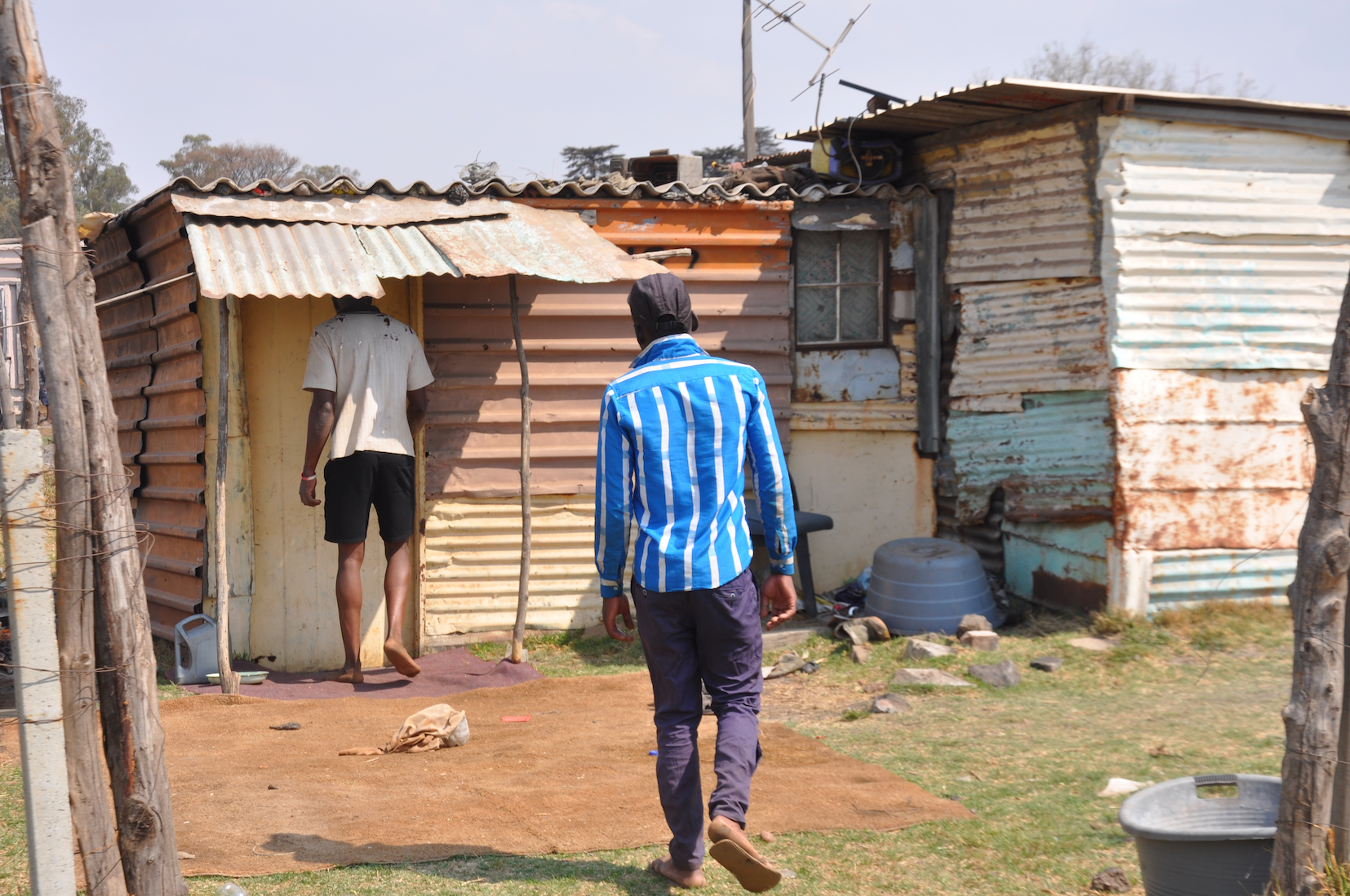A Mozambican family in Springs is mourning the death of a loved one after police swooped on informal miners in Daggafontein last month. Earnest Macaringue, 45, succumbed to burn wounds on 12 September, bringing the death toll since the operation to seven, according to representatives of the African Global Diaspora Network and members of the Mozambican community in Springs.
Macaringue was among the group of informal miners who were burned at the time of Operation Vala Umgodi on 26 August. He was admitted to Pholosong Hospital.
The operation was conducted by the South African Police Service (SAPS), the South African National Defence Force (SANDF), and the Ekurhuleni Metro Police Department.
Macaringue, a miner for more than five years, had gone to work with three family members who also made their living by processing gold at an old mine dump in Daggafontein. According to his son, Nelio, they rushed into the reeds along a nearby river to hide from the police.
Struggled to escape the flames
It is not clear how the reeds caught fire during the raid, but the police have been accused of setting them alight. The fire caught the hiding miners by surprise. Nelio watched as his father struggled to escape the flames.
“My father insisted on saving all of us and refused to leave until everyone was out of danger,” said Nelio Macaringue. “But all the while he was in pain.”
Nelio, who recently recovered from his burns, said the family had paid a total of R7,500 for his father’s medical bills.
Apart from Macaringue, the dead are all Zimbabwean, according to the African Global Diaspora Network.
 Some miners have already gone back to work. (Photo: Kimberly Mutandiro)
Some miners have already gone back to work. (Photo: Kimberly Mutandiro)
Families of the deceased have been in touch with Zimbabwean and Mozambican embassies for help to process papers and repatriate the bodies.
The chairperson of the African Diaspora Global Network, Dr Vusumuzi Sibanda, said the organisation planned to launch a lawsuit against the ministers of police and defence, following allegations that the fire had been started by someone from the army or the police.
“We plan on suing the ministers of police and defence once we have gathered all the evidence,” he said.
A ‘barbaric and rogue act’
Sibanda referred to the incident as a “barbaric and rogue act”. He said a crackdown on informal mining was not necessarily wrong because it could lead to the arrest of gang members and rogue groups.
“But what is wrong is the killing of defenceless people who are trying to earn a living.”
Gauteng police spokesperson Brigadier Brenda Muridili said an inquest had been opened and the Independent Police Investigative Directorate had been informed of accusations that law enforcement agents had started the fire.
Daggafontein residents said the exact number of dead and injured was still not known.
“Miners who work in the area are not only from Daggafontein; we have people coming from Payneville, Springs, Kwatema, and other places who include men and women. Therefore, it’s difficult for us to know if all affected people were found,” said George Nyalunga, a representative from the Mozambican community. He said three Mozambicans had been admitted to hospital, including one woman miner.
Nyalunga said the job helped him look after his wife and two children in Mozambique. He said the fire was the worst incident he had witnessed.
“All these years we faced arrests and the police fired rubber bullets, but no one was ever killed. Witnessing people being burned alive is not something that we ever expected,” he said.
Newman Chimutsi said three of his brothers had been badly injured. Two had been discharged, but one was still in hospital, he said. The family was battling to raise money for his treatment. He was also slightly burned but had recovered. If given a chance, he would go back to Zimbabwe, he said.
Some miners have already returned to work, despite the raid and two follow-up operations. A miner who gave his name as Kuda said he and others had been forced to go back to work to raise money to repatriate the bodies of their friends and to help the 12 others still in hospital. He said the repatriation of a body cost up to R30,000.
We work peacefully, and we do not steal from anyone.
“We work peacefully, and we do not steal from anyone. Some of us have no other means of getting jobs, and this is the only way we can help repatriate our friends’ bodies,” he said.
 Tatenda Sithole carries her baby on her back while she works. (Photo: Kimberly Mutandiro)
Tatenda Sithole carries her baby on her back while she works. (Photo: Kimberly Mutandiro)
Agripa Kekana, who is originally from Polokwane, says he works with his wife, Tatenda Sithole, sorting stones and processing gold from Monday to Saturday. His wife carries their nine-month-old baby on her back while working. They take the contents home and Kekana arranges to process the gold before selling it. They make up to R5,000 a fortnight.
“We have lots of women working with us here. Next time, when the officers think of doing the worst, they should know that we have women and children here,” he said. DM
First published by GroundUp.




 Tatenda Sithole carries her baby on her back while she works. (Photo: Kimberly Mutandiro)
Tatenda Sithole carries her baby on her back while she works. (Photo: Kimberly Mutandiro)